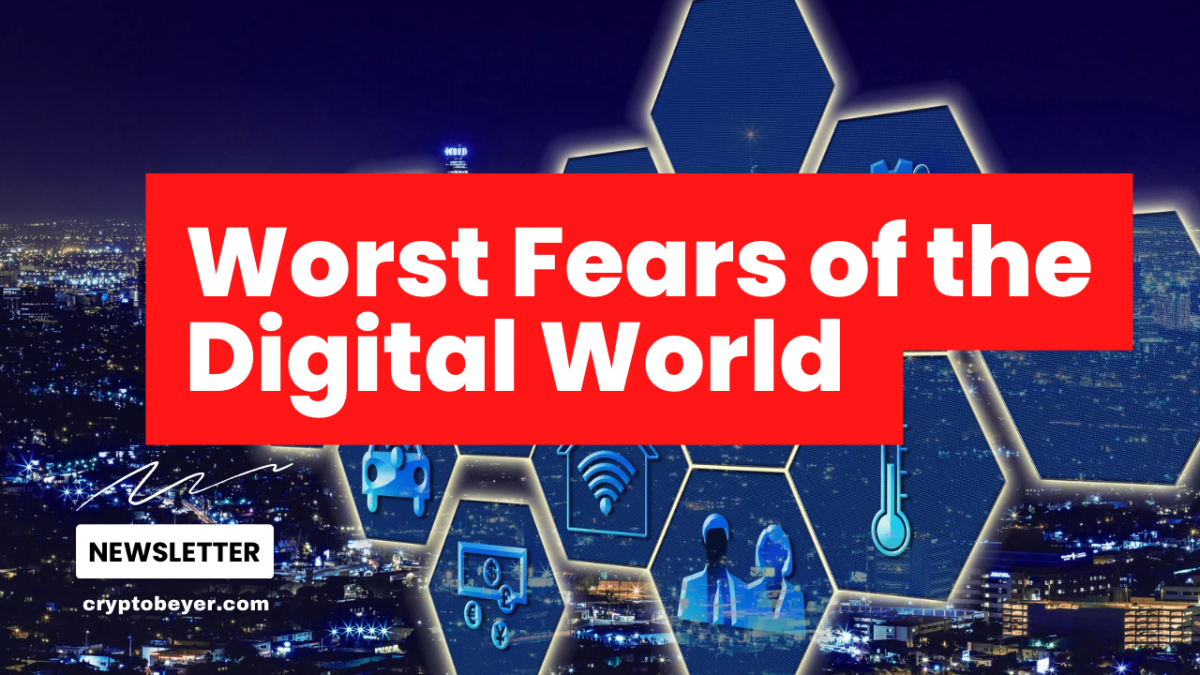The worst fears of digitalization may be dystopian, but they are valid. We do not need to put on a tin foil hat to fear the future. Remember, ignorance is the root of misfortune. Here’s what we need to watch out for.
KEY TAKEAWAYS
- The growth of blockchain technology and crypto currencies provide great solutions for society. But we also need to be aware of the risks of digital technology to avoid creating a world that limit our freedom. Digital money and digital IDs are feared to be tools for public control.
Not surprising, but cash is ending. 10 countries have already launched a digital currency and 105 countries are exploring the potential of launching a digital version of its currency. The Bahamas have launched their Sand Dollar and Nigeria the Enaira. India is launching the digital rupee in 2023. China is in the forefront of launching its digital yuan and has already started doing tests across the nation. Whereas the USA and UK are behind in the process. However, there are rumors that the USA will use the most credible stablecoin, USDC, as its digital currency, and UK will launch what will be called Britcoin. There are even talks within the crypto space that USDC will become the next world reserve currency as the US dollar will continue to be the strongest currency (empire) on earth. Freedom seekers and crypto enthusiasts dream that Bitcoin will become the first decentralized world reserve currency which would mean dramatic global political shifts in power. However, it is not likely that Bitcoin will become the global reserve currency with the current financial and political systems of the world. Put simply, no powerful empire will hand over their keys to their kingdom. I digress.
Digital money equals digital IDs. Governments need to create digital wallets for everyone in the entire population when they implement a digital money system. Each wallet obviously needs to be securely connected to one individual. Therefore, digital IDs is also a key component of digitization.
Digital ID is digital version of the physical national identity card that require biometric information such as our face and fingerprint, eye color and height. Usually, a social security number is also included.
Did you know that the United Nations sustainable development goals include that member states should implement a digital ID by 2030?
Digital ID’s can be used to promote equitable social, political, and economic empowerment, help to fight pandemics, and protect human rights. Proving one’s identity is crucial for civil liberties and for gaining access to services and to conduct professional and personal business. The opportunity and fears are that a digital ID can store a limitless amount of personal data about us and be used by the government and by private entities. Our digital ID will likely store our health data as well as our digital money. Private entities will not have the same access to information as government organizations and institutions. The General Data Protection Regulation (GDPR), which is designed to improve the security and privacy of personal data in the EU requires that the control of personal data rests with the individual. But digital IDs are highly complex and can include a range of different data and serve different use cases for different entities. Digital IDs can be used for login credentials, track online browsing behavior and online shopping. A government-controlled wallet also means that all transactions can be tracked by the government. The worst fears are that digital ID could track social behavior and be a way to identify political interest of the individual. There is a reason why totalitarian regimes are early adopters of digital money and digital IDs…
The line between privacy and freedom is blurry in the digital world.
Digital developments can clearly be used as a top-down approach to control the population and leave people with little opportunity to be financially free and to escape from political oppression. Crypto currencies such as Bitcoin may be seen as a powerful powerhouse for increased financial freedom as it is not controlled by any single entity or political and religious institution.
A solution may be for governments to use blockchain technology and what’s called Self-Sovereign Identity that keeps your data under your control. Put simply, it is a way to store our sensitive data in a decentralized way and the only one we need to trust is code.
In conclusion, code can be used to control us or to bring us freedom. I choose freedom.

